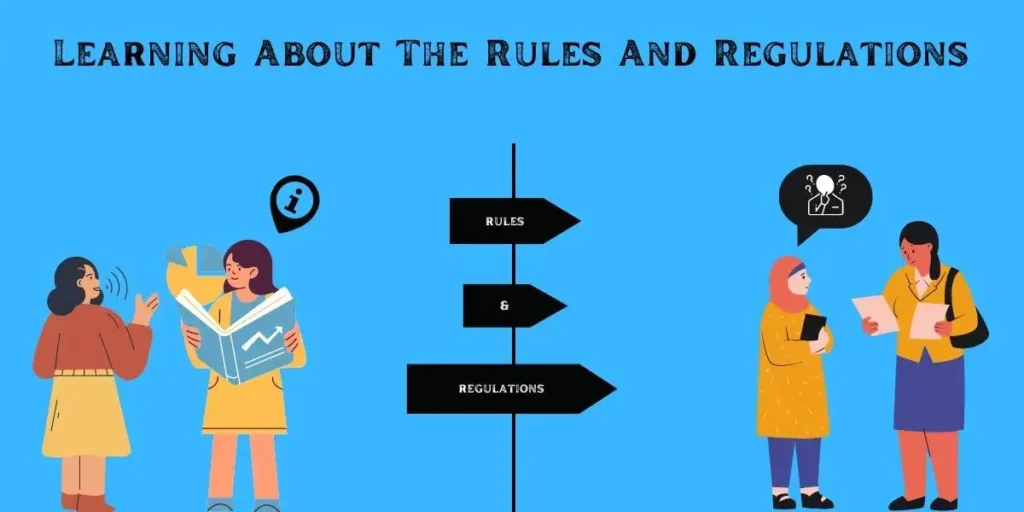Tenants should ask landlords about the lease terms and conditions, rent payment methods, security measures, and maintenance responsibilities before signing any rental agreement.
These questions help tenants understand their legal obligations and rights towards the property and the landlord.
Keen to optimize your tenant-landlord communication? Let’s dive right in!
Understanding Your Lease Agreement

Reviewing The Lease Agreement
Before signing any lease agreement, it is vital to read and understand the contents. To ensure that you are making the right decision for your future living conditions,
Follow these steps:
- Read the lease agreement carefully and ask for clarification on any section that isn’t clear.
- Check the lease duration, the rent amount, and payment due dates are all accurate and reasonable.
- Understand the penalty fees for late payments, and if there are any eviction clauses.
- Confirm that the lease agreement includes all details discussed with the landlord.
- Keep a copy of the signed lease agreement in a secure place, in case of future disputes.
Understanding Your Rights And Obligations
As a tenant, it is essential to be aware of your rights and obligations in the lease agreement. Here are some key points to consider:
- Every tenant has the right to live in a safe, sanitary, and peaceful environment.
- All tenants must comply with building regulations, community rules and regulations, and local laws.
- Tenants must not damage the property and leave it in the same condition as it was at the start of the lease agreement.
- Tenants have the right to receive notice before entering the apartment for maintenance or inspection.
- Tenants have the right to request repairs and maintenance to ensure the apartment is habitable.
Learning About The Rules And Regulations
Every rental building has specific rules and regulations that tenants must abide by. Here are some points to consider:

- Does the building have specific move-in and move-out times, and do they charge for it?
- Are there any restrictions on the use of common areas?
- Does the building have noise or party rules and regulations?
To avoid any misunderstandings or disputes, make sure you understand the rules and regulations from the start.
How To Negotiate A Lease Agreement
It is possible to negotiate some points in a lease agreement, such as lease terms, security deposit, and rent prices. Here are some negotiation strategies to consider:
- Research average rent prices in the area and try to negotiate a fair agreement.
- Ask if you can renew your lease or break it early if necessary.
- Negotiate the security deposit amount.
- Suggest signing a shorter lease if you have concerns about a long-term commitment.
Basic Lease Terms To Negotiate
Before signing a lease agreement, consider negotiating the following basic lease terms:
- Rent amount and payment schedule.
- Duration of the lease agreement.
- Security deposit amount.
- Pet policy.
- Maintenance and repair responsibilities.
Special Lease Provisions That Can Protect You
Special lease provisions can help protect tenants in specific situations. Here are some clauses to consider:
- Early termination clause.
- Subletting and assignment clause.
- Security deposit return clause.
- Right of entry clause.
- Note to repair/renovate the apartment.
Adding special lease provisions depends on the landlord’s willingness, so make sure to negotiate and include these clauses if possible.
When To Bring In A Lawyer
If you’re unsure about any aspects of the lease agreement or if the landlord has a history of bad faith behaviour, it may be best to hire a real estate lawyer.
Here are some points to consider:
- A real estate lawyer can help you understand the legal jargon of the lease agreement.
- A lawyer can help identify any clauses that could be unfair to you as a tenant.
- A real estate lawyer can protect you against potential legal disputes and help you understand the eviction process.
Having a lawyer’s guidance can provide peace of mind and help you make informed decisions.
Safety And Security In The Rental Property
Checking For Safety Hazards In The Rental Property
As a tenant, it’s important to ensure that the rental property does not pose any safety hazards. Here are some things to check for:
- Look out for exposed electrical wiring, mold, or any water damage on the walls and ceilings.
- Check for tripping hazards, such as uneven flooring or loose tiles.
- Ensure that all staircases have sturdy railings and that they are not broken or shaky.
- Test all the smoke detectors and fire alarms in the rental property to make sure that they are working correctly.
- Check fire extinguishers and ensure that they are easy to locate.
Identifying Potential Safety Hazards
It’s important to identify potential safety hazards in the rental property before they become real concerns. Here are some things to keep in mind:
- Don’t hesitate to report any potential hazards to the landlord or property manager, no matter how small they seem.
- Ensure that all power outlets and switches are working correctly.
- Inspect the kitchen area and ensure that all the appliances are in good working order.
- Look for potential hazards outside the rental property, such as broken steps or loose stones on the driveway.
- Check doors and windows for any damages that may pose a safety hazard.
ensure Enough Smoke Detectors And Fire Extinguishers
Smoke detectors and fire extinguishers are essential to ensure that you and your family remain safe in a rental property. Here are some things to consider:
- Ensure that smoke detectors are installed in each room of the rental property.
- Make sure that the fire extinguishers are easily accessible and regularly serviced.
- Ask the landlord or property manager about the property’s fire safety plan and emergency procedures.
Investigating The Security Of The Rental Property
It’s crucial to investigate the security of the rental property before you move in. Here are some things to consider:
- Ensure that the building security measures are up-to-date and functioning correctly.
- Check that all the windows and doors have sturdy locks and that they are working correctly.
- Research the crime rate in the surrounding community and investigate other safety measures in the area.
- Consider installing motion sensors and security cameras if the rental property does not offer them.
As a tenant, it’s essential to prioritize safety and security when looking for a rental property.
By checking for potential hazards and evaluating building security measures, you can ensure that you and your loved ones remain safe and secure throughout your stay.
Frequently Asked Questions On What Tenants Should Ask Landlords
What Essential Items Should Tenants Check Before Signing The Lease Agreement?
Before signing a lease agreement, tenants should check the rent, security deposit, utility responsibility, and maintenance policy.
How Can Tenants Ensure A Smooth Move-In Process?
Tenants can ensure a smooth move-in process by checking the condition of the property, reporting any damages, and preparing necessary documentation beforehand.
What Steps Can Tenants Take If They Have Noisy Neighbors?
If tenants have noisy neighbors, they can communicate politely, inform the landlord, and file a noise complaint with the local authority.
What Should Tenants Do If They Want To Terminate The Lease Early?
If tenants want to terminate the lease early, they should review the lease agreement, communicate with the landlord, negotiate for a mutual agreement, and be willing to pay the termination fee.
Conclusion
Empowered with the right questions, you’re now ready to engage your landlord effectively.
Harness this knowledge to spark meaningful conversations and enhance your rental experience.
Never hesitate to ask for clarity. After all, clear dialogue paves the way for harmonious tenant-landlord relationships. Go ahead, ask away!
Reference
https://www.nyc.gov/site/hpd/services-and-information/tenants-rights-and-responsibilities.page
